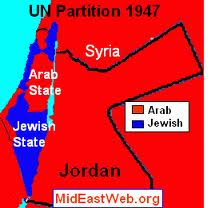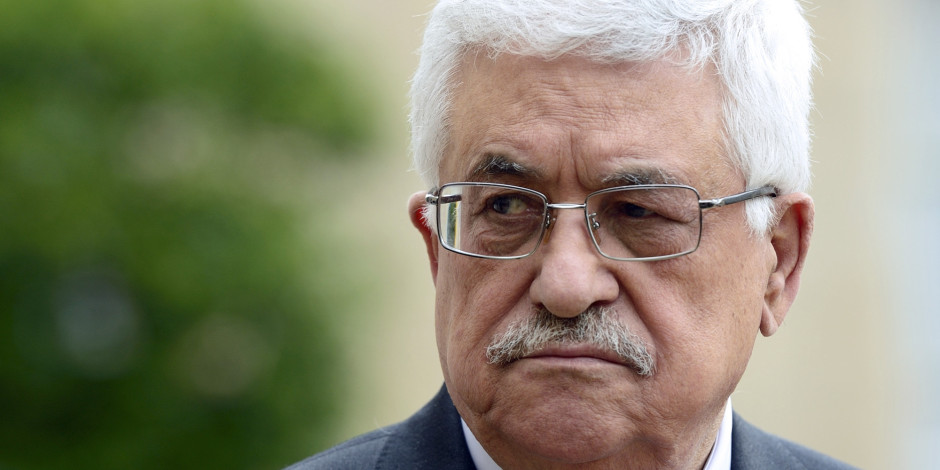Incitement and peace don’t mix, Israeli Prime Minister Benjamin Netanyahu said recently, referring to a persistent and disturbing pattern in which Israel and Jews are demonized and delegitimized by the institutions of the Palestinian Authority, the representative body of the Palestinians currently engaged in peace talks with the Israeli government.

Charging that the PA’s campaign of incitement is undermining the peace process, Israeli officials contend that the Palestinians are willfully destroying the chances of a tw0-state solution.
In a recent letter to U.S. Secretary of State John Kerry, who’s already invested great efforts to broker a peace agreement between Israel and the PA, Netanyahu wrote, “Incitement and peace cannot coexist.”
Netanyahu elaborated on this theme when he said, “This Palestinian government incitement is rampant. Instead of preparing Palestinians for peace, Palestinian leaders are teaching them to hate Israel.”
Claiming that the Palestinian campaign has not abated since the resumption of peace negotiations last July, Israel charges that PA school texts, websites and media deny Israel’s historical legitimacy and right to exist and defame Jews in antisemitic portrayals worthy of The Protocols of the Elders of Zion.
Earlier this month, Strategic Affairs Minister Yuval Steinitz released a report summarizing Israel’s complaints about the PA.
Asserting that the PA’s pro-peace sentiments are incompatible with its bitter denunciations of Israel and Jews, he observed, “The general phenomenon is very clear: They are poisoning Palestinian children with deep hatred of Israel and the Jewish people.”
Adding his voice to the debate, Israeli Defence Minister Moshe Yaalon declared that true reconciliation between Israel and the Palestinians will remain elusive as long as incitement is part and parcel of the Palestinians’ agenda.
“It all begins with education,” he said.

Israel’s decision to highlight this issue goes hand in hand with its demand for Palestinian recognition of its status as a Jewish state — a demand that PA President Mahmoud Abbas has so far rejected.
Netanyahu has said that the “minimal requirement for peace” with the Palestinians is their recognition of Israel as the homeland of the Jewish people. As he put it recently, “The question shouldn’t be, why does Israel make this demand? The question is, why do the Palestinians consistently refuse to accept it?”
Calling peace a “two-way street,” he said, “I’m ready for a historic compromise that ends the conflict between us once and for all.”
Kerry, who has made 10 trips to the Middle East in an attempt to bridge the gaps between the two sides, has reproached Abbas for not willing to recognize Israel officially as a Jewish state. Abbas has rebuffed Kerry, saying that Palestinian acceptance of this principle would disenfranchise the 1.6 million Arab citizens of Israel, distort the Palestinian narrative of the Arab-Israeli conflict and undercut the right of Palestinian refugees to return to their homes in what is now Israel.
To the Palestinians,Israel was created in sin, their lands having been taken away from them during the 1948 Arab-Israeli war, during which most Palestinians fled or were driven out by Jewish forces.

Under the 1947 United Nations partition plan, 56 percent of Palestine was to be given to Jews, while much of the rest was to handed over to the Palestinian Arabs, who outnumbered Jews by a considerable majority.
The Palestinians angrily rejected partition as an unjust solution, as did the Arab world. Six Arab armies attacked Israel after its declaration of independence on May 14, 1948, and when the war ended about seven months later, Israel controlled 78 percent of historic Palestine.
In 1993, during the Oslo peace process, the PLO and Israel recognized each other. Today, at a minimum, the PA demands statehood in the West Bank and the Gaza Strip, which comprise 22 percent of Palestine. Hamas, the PA`s adversary which currently administers Gaza, demands sovereignty and independence in all of Palestine: Israel, the West Bank and Gaza.
Given the setbacks and disasters they`ve endured since 1948, many Palestinians are loathe to recognize Israel. Their antipathy, greatly compounded by Israel`s occupation of the West Bank, often veers into stereotypical anti-Jewish expressions and attitudes, which turn up in Palestinian official communiques, school books, newspaper articles, television and radio shows, and so on.
Examples abound.
Maps published by the PA leave out Israel. The U.S. embassy in Tel Aviv, in a report released in 2004, said the PA hews to a practice of “appropriating sites, areas, localities and geographic regions inside the territories of Israel as Palestinian, laying substantive grounds to the contention that the PA did not in fact recognize Israel as the state of the Jewish people.”
In the media and in mosques, Jews have been regularly vilified. On Jan. 9, 2012, a PA television station broadcast a speech by an imam, standing next to the PA`s minister of religious affairs, in which he called Jews the descendants of apes and pigs.
In PA-issued textbooks, the Jewish historical and religious connection to Israel is glaringly absent.
A report published by Israel`s ministry of defence in 2006 noted that the PA school curriculum “shows a continuing denial of Israel`s right to exist and a continuing cultivation of the vales of armed struggle against Israel.”
Books distributed by the PA in schools claim that the ancient inhabitants of Palestine were Arabs, completely ignoring the long Jewish presence in the land of Israel.
Terrorists are glorified as heroes and roads and institutions have been named in honor of suicide bombers, who terrorized Israel in the opening phase of the second intifada, which broke out in September 2000.

Two years ago, Fatah, the main faction within the PA, posted an image of Dalal Mugrabi on its Facebook page and hailed her as a hero. Mugrabi participated in the deadliest terrorist attack against Israel., which took place in March 1978, when a band of Palestinians commandeered a bus on the coastal road and killed 36 passengers during a shoot-out with Israeli commandos. The incident prompted Israel to invade southern Lebanon, a PLO base, in Operation Litani.
Last September, the Washington Institute for Near East Policy published a study on incitement, concluding it has subsided, but not disappeared, since the end of the second Palestinian uprising in 2005. The study’s author, David Pollock, told The New York Times, “There are ups and downs, but unfortunately, I think it is true that the official Palestinian media continue to incite against Israel and to claim that all of Palestine belongs to the Palestinians. There’s almost no positive discussion of peace, two peoples, any of that sort of favorable or even just moderate messages about Israel.”
The Palestinians dismiss Israeli accusations on incitement as a grand ruse to deflect attention away from core issues such as final borders, settlements and refugees.
They add that Israeli maps tend not to demarcate Palestinian territories in the West Bank and Gaza, and that school texts portray the Palestinians as the enemy and do not acknowledge the nabka, the flight and dispossession of Palestinians from Palestine. They further argue that the expansion of Israeli settlements in the West Bank, plus Israeli army raids into West Bank towns and refugee camps, constitute a form of incitement.
PA spokesmen contend that Israel refuses to reconvene a committee that was expressly established in 1998 to address the issue of incitement. Israel retorts that the committee, of which the United States was a member, was disbanded after some 20 sessions because it was “completely useless,” to quote Steinitz.

The persistence of Palestinian incitement should not deter Israel from seeking peace with the Palestinians, says Justice Minister Tzipi Livni, Israel’s chief negotiator at the peace talks. Israel, she noted, should strive to reach an agreement with the Palestinians so that it can remain a Jewish and a democratic state.
Livni and Netanyahu are both right.
Palestinian incitement is inappropriate and intolerable and should cease, but it should not be used as a pretext to sabotage a peace agreement.
Simply put, incitement in all its forms should stop.
The reasons are clear.
Incitement creates doubts among Israelis regarding Palestinian aims and intentions, and is, therefore, counter-productive. It sows mutual mistrust. In the absence of trust, neither Israel nor the PA will take calculated risks to achieve peace. It emboldens Palestinian and Israeli rejectionists who oppose a tw0-state solution. It contradicts the non-violent approach of the current PA leadership.
If real peace is the sincere objective of the Palestinians, they must cast aside incitement, for once and for all, and try to reach a final-status accord with Israel.
